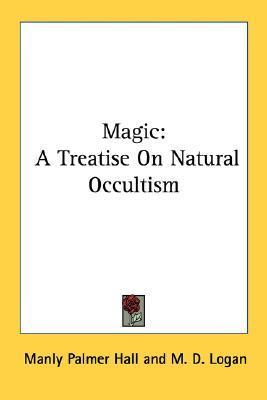What do you think?
Rate this book


68 pages, Paperback
First published May 31, 1988
"An occultist is an expert in the science of life."
"Magic is not medieval superstition tutored by the spirit of ignorance: it is a very material fact."
"Magic is the art of manipulating the unseen forces of Nature."
"Few realize that man is responsible for the things he has not done."
"Ignorance is not Black Magic but it is the greatest ally that the Black Magician has in the world today."
"People who do not know any better are constantly doing someone else's dirty work."
"Moral shortsightedness results in vice, philosophical shortsightedness in materialism, religious shortsightedness in bigotry, rational shortsightedness in fanaticism."
"The wise man obeys the laws of the substances which he works with, and thereby causes these substances to work for him;..."
This one I acquired with the massive lot I inherited from my late Uncle Joe. I am not a believer in the occult or any mode of religious thought though I like to read such works on occasion. This one is really far-out man. It is a hodge-podge collection of beliefs cobbled from Hinduism, Egyptian myth, Christianity, and medieval European lore on witchcraft including bits from classical literature such as Dante, Milton and even a definite influence from Blavatsky especially found in the repeated references to Atlantis. Of course, I’m assuming more Blavatsky’s version than Plato’s (unfortunately). All of this has some terms ripped from science & astronomy at the time (1920s) thrown into the mix.
There are a (very) few tidbits that I find relevant such as on page 24 item #47 the last sentence which reads:
As of old, so today, the cry is seldom “Save souls,” but is usually “Show us miracles.”
Then other parts of the text can be taken the wrong way (if they weren’t meant in that context already that is) such as Item #59 which refers to the “Brown Man” who was “ordained to labor in the fields” and the “Black Man” described as “the creature born into slavery”. Yikes.
There are other questionable passages in the text such as Item #90 that strikes me as slightly fascistic.
Our natures cannot be allowed to just grow, […] anymore than children can be allowed to run around promiscuously and then be expected to amount to anything; they must be trained, and there must be a thorough understanding as to who is master and who is servant. [pg.37]
Granted this passage is in the section titled The Mechanics of Magic and is referring to the discipline of magic but the metaphor is a bit of a collar tugger but not out of place.
Then there’s Item#102 pg.41. It begins:
No man who is sick should be healed merely because he has an ailment. He should learn the lesson that accompanies the disease which he has brought upon himself. To affirm health is foolishness; to find out the reason for the ailment, make right the wrong and become healthy again, is wise and proper. To be so moderate, so wise, so thoughtful, as not to become sick, is still better philosophy.
The context is you shouldn’t use magic on people who do not specifically ask per item for it but it also places blame for illness which for the most part is just plain wrong. Then the rest of the passage runs with the contextual not really relating to what it has already put forth with the blame game. This is repeated throughout the book and items don’t necessarily relate to the previous or next item either. Again, this passage can be misconstrued and has been, unfortunately, a refrain from the American right and anti-vaxxers in general.
On the other hand, some of the rich imagery was really cool in my opinion. Also, the illustrations are really neat. I especially liked the image of the "Black Morning” at the beginning of time in the text. It sent my mind off in a million directions, so there’s that.
Overall, I’m not angry or disappointed that I read it, it was a fast read although its formatting diced up any sort of narrative momentum that could have been possible. I would only recommend this if you like reading esoterica such as 19th-century spiritualism & mysticism and belief in Atlantis. Otherwise, I can’t recommend this one.